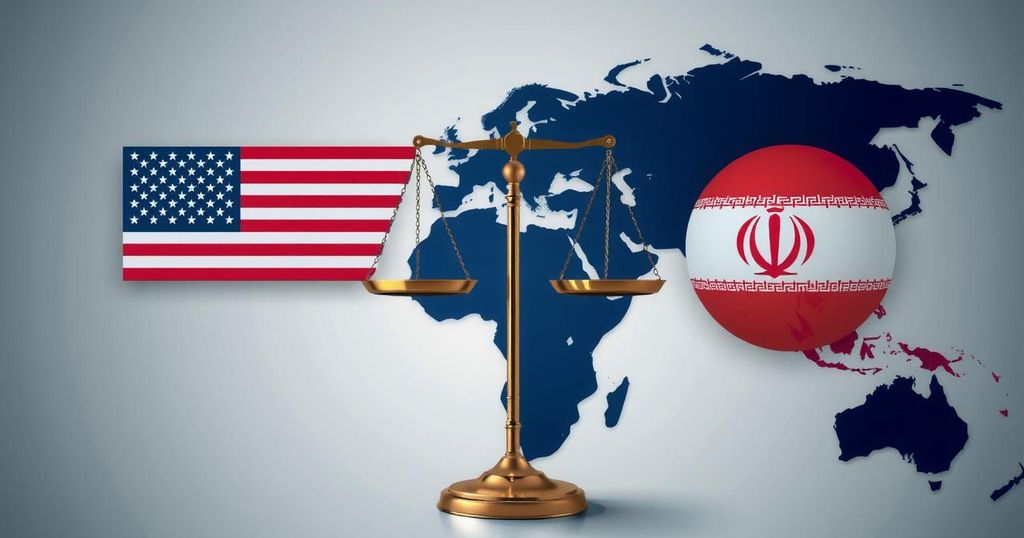The U.S. Treasury has enacted sanctions against Iran’s Oil Minister and specific vessels involved in crude oil exports, following the delivery of a letter from President Trump. This represents a continuation of the maximum pressure policy on Iran, which has been heightened by the current administration since January. Iran’s leaders, especially Ayatollah Khamenei, criticized U.S. diplomatic efforts, dismissing them as deceptive amidst escalating tensions.
The United States Treasury Department has imposed sanctions on Iran’s Oil Minister Mohsen Paknejad and several vessels involved in Iranian crude oil exports, following the delivery of a letter from President Donald Trump to Iran. This letter was conveyed by Anwar Gargash, the diplomatic adviser to the United Arab Emirates, as stated by Iran’s Foreign Ministry spokesperson.
Treasury Secretary Scott Bessent announced that in addition to Paknejad, three entities linked to the Iranian oil trade in China were designated, and three shipping vessels were identified as blocked due to their involvement in these transactions. Paknejad is noted for overseeing the export of substantial quantities of Iranian oil, designating billions for military export.
The sanctioned vessels comprise the Hong Kong-flagged Peace Hill and its owning entity, Hong Kong Heshun Transportation Trading Limited; the Iran-flagged Polaris 1; the Seychelles-registered Fallon Shipping Company Ltd; and Liberia-registered Itaugua Services Inc. State Department spokeswoman Tammy Bruce confirmed that these actions reflect President Trump’s ongoing policy of exerting maximum pressure on Iran.
Iran has faced extensive Western sanctions predominantly due to its nuclear program. The current U.S. administration has intensified these measures since taking office, reinstating a campaign deemed maximum pressure, which targets the Iranian government through a combination of strategies.
These sanctions were initiated after the Trump administration’s letter which cautioned Iran against possible military action should they not comply. During a meeting with students in Tehran, Ayatollah Seyyed Ali Khamenei, Iran’s Supreme Leader, expressed skepticism regarding the U.S. diplomacy, stating that negotiations are futile after Trump’s withdrawal from the nuclear deal, calling recent overtures a deception.
Ayatollah Khamenei remarked that the U.S. aims to mislead global opinion by claiming readiness to negotiate while knowing they would not adhere to any agreements. He emphasized that the negotiations would not yield sanction relief but rather exacerbate the situation. He recalled that Iran had previously signed the Joint Comprehensive Plan of Action, but Trump’s unilateral withdrawal in 2018 significantly jeopardized the deal’s future.
In conclusion, recent U.S. sanctions against Iranian officials and entities reinforce the administration’s maximum pressure strategy against Iran. The dismissal of diplomatic overtures by Tehran emphasizes the complexities of negotiations following the U.S. withdrawal from the nuclear deal. As the situation unfolds, the tension between the nations continues to shape their respective foreign policies, inevitably influencing global relations and stability.
Original Source: www.presstv.ir




